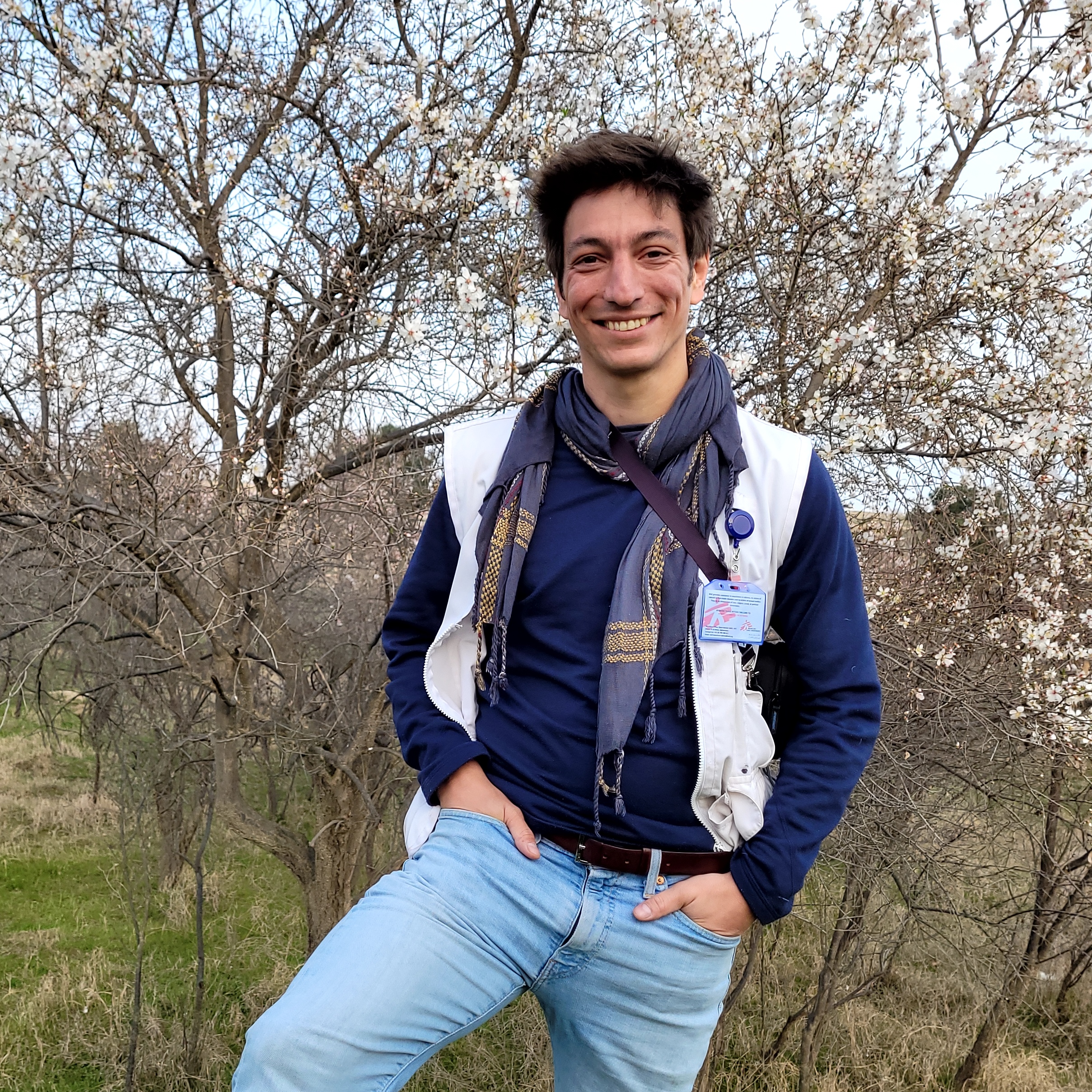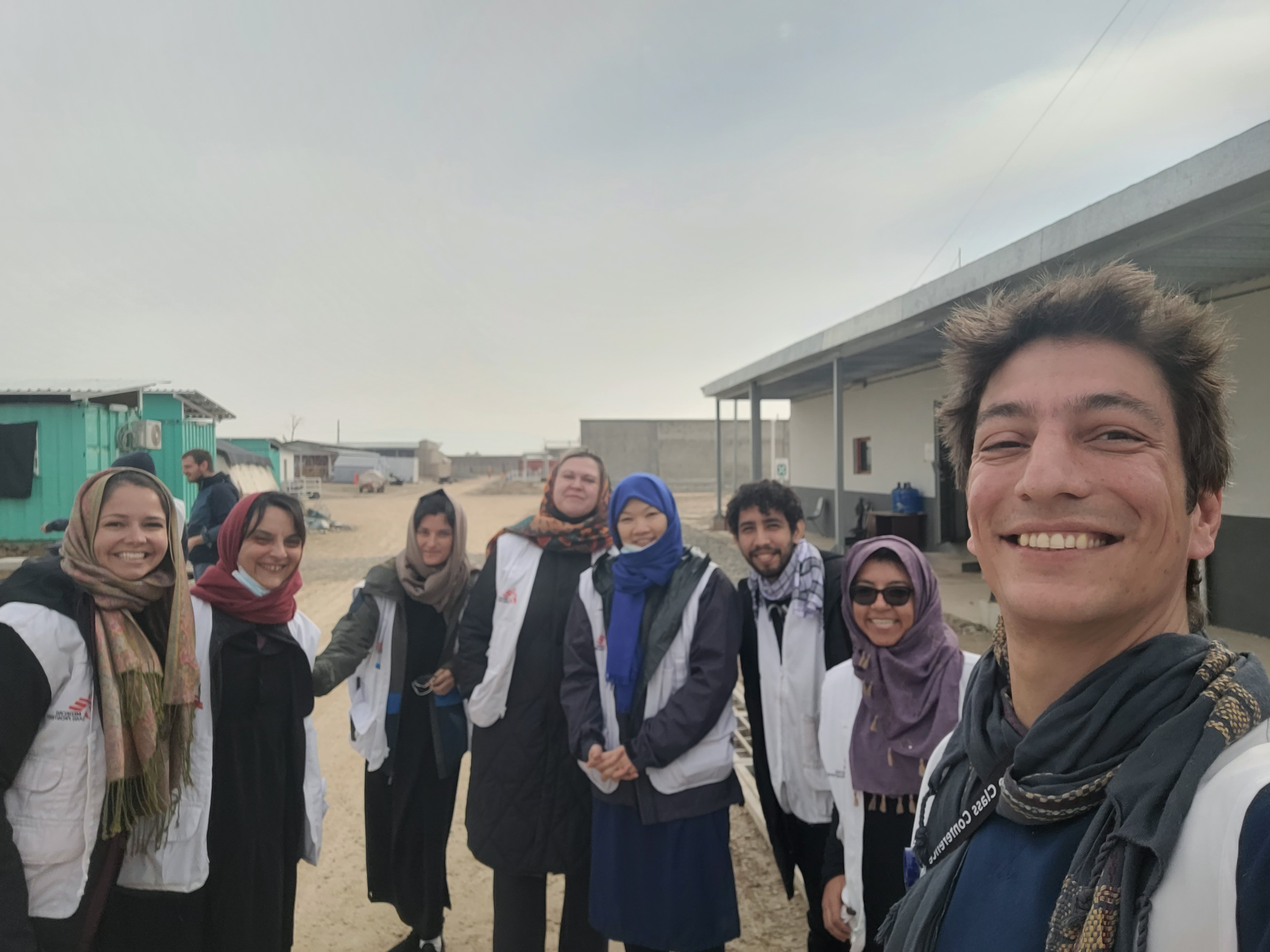Finance Manager in the field: an exciting challenge!
Yannick has a degree in Political Science and Economics. After working for a few years in the private sector, he wanted to open up to an international context and join a committed organization: he applied to Médecins Sans Frontières (MSF) and left in January 2021 for a first mission in Masisi (Democratic Republic of the Congo) as a Project Finance Manager. After a few months break, he left again. This time to Afghanistan. He tells us about the challenge of his second experience as a Project Supply Finance Manager in Kunduz. "This experience is a challenge, but it is very rewarding!"

"To tell you about the general context of the mission: MSF has rebuilt a new hospital. It has been open for 6 months. We are focused on trauma care, victims of war, bomb attacks, or road accidents. It's a very big project, there is a lot going on... And of course, with the current context, the government change is a big mystery."
Big project also means big team.
"For the construction aspect, we work with fairly technical profiles, including an architect and an electrical engineer. They are responsible for monitoring the construction progress. On the hospital side, there is, of course, a large medical team (with some rather specific profiles, such as nurses for ER and ICU). And finally, the more administrative side of the project. My role as a Project Supply Fin Manager involves working partly with supply and partly with finance. Not to mention my colleagues in charge of Human Resources, the project coordinator and the person responsible for logistics. In total, we are about 15 international mobile staff members."
"I work with two departments (Supply in MSF lingo and Finance). Every morning, I have a meeting with my team to establish the priorities for the day. For the Finance aspect, we mainly have to deal with the payment of suppliers and manufacturers. Then, of course, the payment of salaries. You must keep track of the different tasks and always check that the invoices are correct and that all the documents are there. Besides, accountability is one of the key principles at MSF. Monitoring the budget and expenses, making forecasts is also part of my job, as well as providing support to my team. I find the Supply side of my job particularly interesting. It involves going to the market, working with local suppliers, establishing contracts and ensuring that all project activities are supported. I also have to make sure that the materials we order for all departments through MSF Supply get to the field on time. If we cannot coordinate with MSF Supply or if it takes too long, we go to the local market to find all the products needed to keep the project running smoothly."
The Supply department has a support function in terms of stock and products. To coordinate all these activities, Yannick is supported by local staff: 3 in Finance and 8 in Supply. "That is the challenging part of my job."

Collaborating with the team is something you learn.
"I learned to listen to the locally recruited staff: to understand why certain decisions are made {...} I remember my first mission when I had just started. I had a lot of ideas in my head about how to handle things the "Belgian way". And in fact, I had to take time to understand, to listen, to learn how to do things by adapting to the culture and the way of doing things in the country. For example, on a mission, all the people we work with do not necessarily speak our language. So, we have to work with translators. This requires a lot of patience and time to listen. We must know how to respect the culture of our colleagues and adapt to very different and religious contexts. It is a daily challenge. I learn a lot from the local teams. I am very happy to work in an international context. Of course, it brings challenges, but it is particularly rewarding."
Working abroad means leaving your loved ones behind for a while. To keep in touch, our international employees rely on the Internet.
"Sometimes there are interruptions, but even in the DRC and here in Afghanistan, the internet connection is pretty stable. I just have to take into account the time difference to keep in touch with my family. MSF really tries to make sure the connection is good. For many of my colleagues whose families are far away, this is very important."
Working with MSF in the field means representing MSF day and night, 7 days a week, even on your own time and on vacation. It is therefore essential to respect the rules set up by MSF. "In a highly unsafe environment like Kunduz, interactions are quite limited. The biggest guarantee of security for MSF is being accepted by the local population. The communities know that MSF provides free medical aid, that our teams are there to support them. Of course, I can only speak from my own experience, but in any case, acceptance by the local population is sensational. And that's what guarantees our safety."
Working abroad with MSF, you will also have to adapt to several changes in terms of food, accommodation, pace of life, leisure activities, language. A new lifestyle awaits you in which privacy and free time can be rare. For Yannick, relaxing moments include cooking, sports, and board games. "It relaxes me to be able to go running or cycling. We play board games and sing. Living and working with my colleagues makes us really connect with each other. Here in Kunduz we also have a big library with lots of choices. Sometimes you must be creative while cooking. You need to adapt to what's available in the country as well, to the local food. And, share common space. We live together. You must be aware of that, make an effort. For example, cleaning up after your shower (laughs). You have to be flexible. From my experience, most staff members are very motivated; and that makes a big difference: you are there with a common goal. That's what helps you accept the little setbacks of everyday life."
What happens next?
"MSF life is pretty intense. It's a lot of adrenaline. Once you get home, you have to be able to slow down. For me, it is spending time with my family, my friends. Having a normal life: going to the supermarket, staying home. That's something I learned when I came back from my first mission: to rest well. And after a few months I have the energy to go back."
